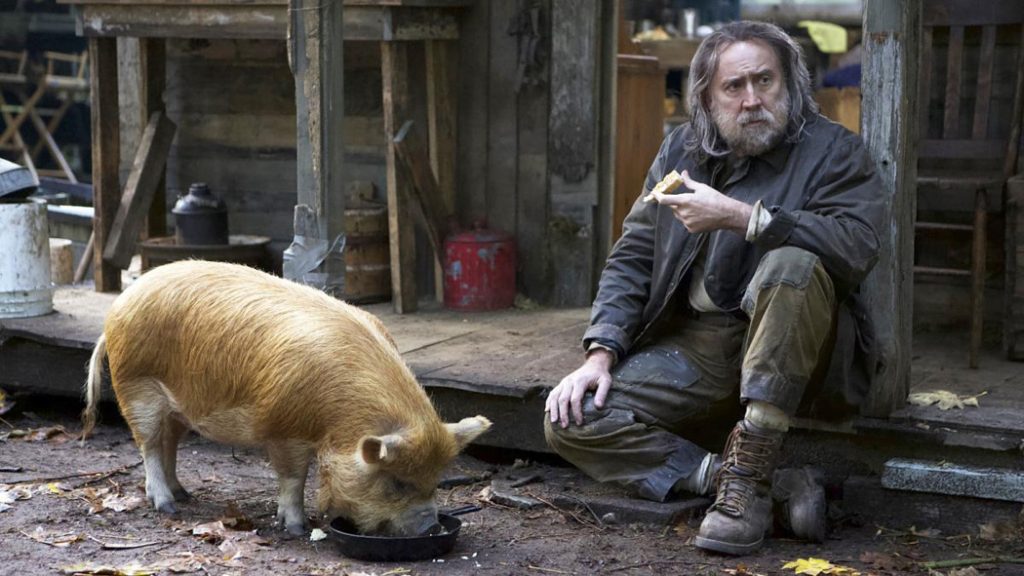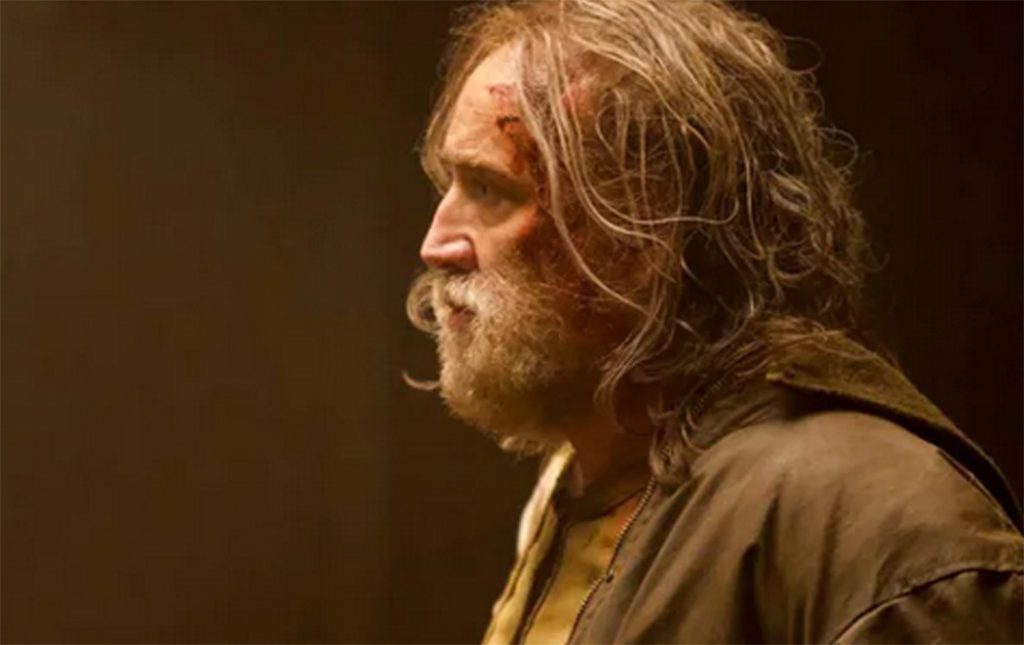
“Someday we’ll all be at the bottom of the ocean. Again.” —Robin Feld
Starring in Pig, Nicolas Cage breaks character as Robin Feld, an aging, grungy-looking guy living off the grid and out of sight, avoiding attention and the social interaction of Portland, Oregon. Sporting shaggy, graying hair and beard, Robin would be a worthy cover guy for Recluse Quarterly. I couldn’t help wishing the script would steer him to a barber’s chair and a hot shower.
Robin abandoned the limelight of a legendary career for a cabin in the woods. To his credit, he’s been trying to absorb a peaceful Buddhist vision of the natural cycles of life. But he also studies the epic geological cycles that put vast, populated regions under water, which doesn’t ease his general state of agitation. So the rare visitor like Amir (Alex Wolff) arrives at their own risk to purchase Robin’s truffles.

Robin’s only companion is a skilled pig, the perfect business partner who locates precious truffles growing underground. And who never demands conversation. In return, Robin cares for her like a pet, without humiliating her with some cute name. But pigs, you may wonder, are not cuddly creatures, like tabby cats or Yorkipoos. Then again, maybe cuddly is overrated. This gentle animal appears to be a low-maintenance housemate who earns her keep, and whose soothing little grunts and snorts make the cabin feel like home.
And now, with assistance from Google, a word about truffles. Truffles are a fungus, or tuber, or both, that grow just below ground, making them invisible yet accessible to the hunter who knows where to look, or to the trained pig or canine that tracks their earthy, pungent scent. What makes them worth the trouble, I’m told, is their complex flavor, described as a musky, smoky mushroom-garlic blend. To French chefs, the truffle is “the diamond of the kitchen.” Restaurants and connoisseurs pay anywhere from $20 to thousands of dollars apiece due to their scarcity, and because they’re so challenging to find or grow, and to harvest and store. The End. And now, back to Pig.
Something happens that draws Robin out of his invisible existence and back into the city: the sudden theft of Robin’s beloved truffle pig (dare we call it pignapping?). Robin recruits Amir as his driver, though they’ve never gotten along. But his desperation far exceeds Amir’s willingness to help or to share some quality arguing time.
Pig is a pensive tale delivered with an absolute minimum of conversation, mostly involving two characters, Robin and Amir, as well as a small but vital role by Adam Arkin. Pig raises various questions that unravel at their own pace—pay close attention so you don’t miss a clue. And if I’m allowed to say this, don’t hesitate to watch the film twice, to make sure all the pieces fall into place. The second viewing is better.
Kudos to director and cowriter Michael Sarnoski for this unusual tale. And most of all, for the classic moment in a snooty Portland restaurant when an earnest young server introduces a strange-looking appetizer by smothering it in poetic BS. If you have an ear for fine comedic timing, you’ll find yourself replaying her presentation more than once.
Pig ponders some of those nagging issues about what’s important or what’s real. It’s about trying to see the big picture, or in Amir’s case, any picture at all. And decoding human behavior to explain why an accomplished man suddenly recalibrates his life in the opposite direction. All of which reminds me of a wise saying that might someday grow up to be an adage: “You’ll never understand another man’s thinking until you have cooked in his kitchen.” See the movie.
